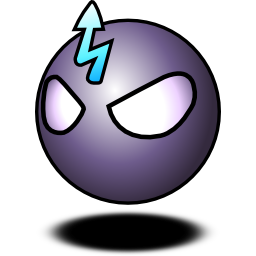It’s been a long time since I’ve written anything, so I thought I’d drop off a quick update. I was in San Francisco last week for a very interesting and unusual conference: ESCoNS. It’s the first meeting of the Entertainment Software and Cognitive Neurotherapy Society. Talk about a mouthful! The attendance was mostly doctors and research lab staff, though there were people in from Activision, Valve, and a couple more industry representatives. The basic idea is that games can have a big impact on cognitive science and neuroscience, particularly as applies to therapy. This conference was meant to get together people who were interested in this work, and at over 200 people it was fairly substantial attendance for what seems like a rather niche pursuit. For comparison’s sake, GDC attendance is generally in the vicinity of 20,000 people.
The seminal work driving this effort is really the findings by Daphne Bevalier at the University of Rochester. All of the papers are available for download as PDF, if you are so inclined. I imagine some background in psychology, cognitive science, neurology is helpful to follow everything that’s going on. The basic take-away, though, is that video games can have dramatic and long-lasting positive effects on our cognitive and perceptual abilities. Here’s an NPR article that is probably more helpful to follow as a lay-person with no background. One highlight:
Bavelier recruited non-gamers and trained them for a few weeks to play action video games. [...] Bavelier found that their vision remained improved, even without further practice on action video games. "We looked at the effect of playing action games on this visual skill of contrast sensitivity, and we've seen effects that last up to two years."
Another rather interesting bit:
Brain researcher Jay Pratt, professor of psychology at the University of Toronto, has studied the differences between men and women in their ability to mentally manipulate 3-D figures. This skill is called spatial cognition, and it's an essential mental skill for math and engineering. Typically, Pratt says, women test significantly worse than men on tests of spatial cognition. But Pratt found in his studies that when women who'd had little gaming experience were trained on action video games, the gender difference nearly disappeared.
As it happens, I’ve wound up involved in this field as well. I had the good fortune to meet a doctor at the Johns Hopkins medical center/hospital who is interested in doing similar research. The existing work in the field is largely focused on cognition and perception; we’ll be studying motor skills. Probably lots of work with iPads, Kinect, Wii, PS Move, and maybe more exotic control devices as well. There’s a lot of potential applications, but one early angle will be helping stroke patients to recover basic motor ability more quickly and more permanently.
There’s an added component as to why we’re doing this research. My team believes that by studying the underlying neurology and psychology that drives (and is driven by) video games, we can actually turn the research around and use it to produce games that are more engaging, more interactive, more addictive, and just more fun. That’s our big gambit, and if it pans out we’ll be able to apply a more scientific and precise eye to the largely intuitive problem of making a good game. Of course the research is important for it’s own sake and will hopefully lead to a lot of good results, but I went into games and not neurology for a reason ;)
 Promit's Ventspace
Promit's Ventspace
Comments